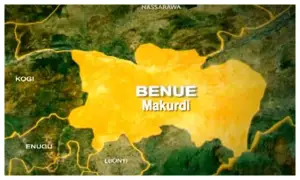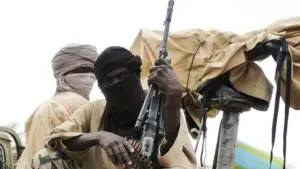President Bola Tinubu on Wednesday visited surviving victims of the recent massacre in Yelwata community, Guma Local Government Area of Benue State, which claimed over 200 lives last Friday.
The President arrived at the Tactical Air Command, Nigerian Air Force Base, Makurdi, at approximately 12:58 pm and proceeded directly to the Teaching Hospital where the injured victims are receiving treatment.
Following his hospital visit, Tinubu headed to the new Banquet Hall of the Benue State Government House for a stakeholder meeting focused on addressing the violent attacks plaguing the region. The state government declared a public holiday to mark the President's visit.
Details of the Yelwata Attack
According to sources familiar with the incident, attackers stormed Yelwata town early morning, strategically dividing into three groups to penetrate the community from multiple directions. Residents who witnessed the attack reported that the invaders fired their weapons in turns, a tactic apparently designed to confuse and divide local security efforts.
The attack has heightened tensions in Benue State, which has long struggled with farmer-herder conflicts and communal violence. This latest incident represents one of the deadliest attacks in the region in recent years.
Professor Yakubu Ochefu, a historian quoted by BenriNews, noted that the current crisis in Benue has roots dating back 200 years, highlighting the complex historical context of the ongoing violence.
Government Response
The President's visit comes amid growing calls for stronger security measures in the Middle Belt region. Miyetti Allah, a herders' association, has reportedly commended Tinubu's peace efforts in Benue, suggesting the administration is engaging with various stakeholders in the conflict.
However, the presidential visit has not been without controversy. Some advocacy groups have criticized aspects of the visit, while others have questioned the political nature of what was intended as a condolence visit.
As the situation develops, security experts emphasize the need for comprehensive solutions that address both immediate security concerns and the underlying historical, economic, and social factors driving the conflict in Benue State.
Stay updated on this developing story by following BenriNews on our social media platforms:













